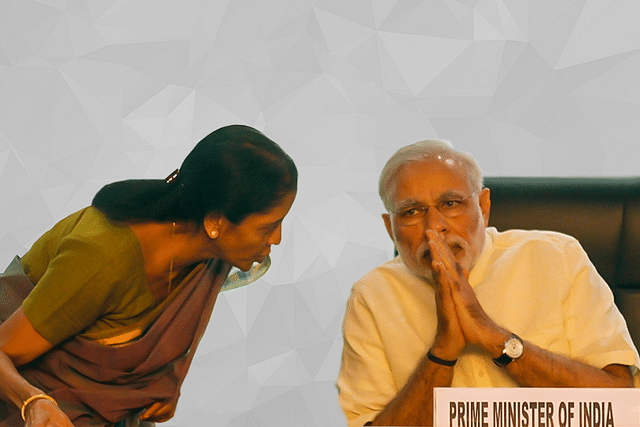
Government Should Heed Panagariya And CEA: No Sector-Specific Sops Are Warranted
Two leading economists have spoken in one voice.
The remedy is reforms, not sops.
The government has heard it now from two credible economists: don’t offer special fiscal concessions to sectors painting scenarios of doom and gloom. First, Arvind Panagariya, former deputy chairman of NITI Aayog, and now Krishnamurthy Subramanian, the Chief Economic Adviser. Both have emphasised that offering sectors currently in distress special sops is not on.
Panagariya, writing in The Times of India, was crystal clear: “Creative destruction is an integral part of a dynamic economy. If the government implicitly underwrites the losses of private enterprises by offering a stimulus any time they suffer large losses, it runs the risk of making them indistinguishable from the numerous inefficient, perpetually loss-making public sector enterprises.”
Subramanian had almost similar things to say. The Economic Times quoted him thus: “The private sector cannot have a situation of (making) private profits and socialising losses…. In a market economy, assets do get reallocated when someone doesn’t manage an asset very well. The private sector needs to realise that. The mindset needs to change from whenever there is difficulty to say “Papa, mujhe bacha lo.”
The art of privatising profits and socialising losses was perfected in India’s crony capitalist era, but under Narendra Modi this has begun to change. But hearing the sob stories of sectors currently facing a downturn – from real estate to autos and telecom – the government could well be guilt-tripped into giving relief when the need is deeper reform.
In the case of the auto industry, the need for structural reform relates to reducing the number of players in the industry when it can at best support three large multi-segment players. In both cars and two-wheelers there are many more such players (six to seven is the norm), not to speak of niche players. The industry is facing two structural adjustment factors – the move away from auto ownership to shared mobility and public transport, and, in urban areas, the policy push towards non-polluting vehicles, especially electric vehicles. Diesel is also dying a slow death, after India ended price subsidies for this fuel. The Indian auto industry needs to downsize and rethink its product mix, and the best it can hope for is sensible policies for growth, not tax cuts and subsidies.
The telecom sector, unlike autos, is already down to three big players plus the public sector, and the only real reform needed is in the area of spectrum pricing, which is still driven by the need for more tax revenue. A more rational pricing regime, rather than one-time concessions, and free tradability of spectrum, will do more to rejuvenate the industry than any special concessions given over the next few years. Sops are not warranted even for the public sector BSNL and MTNL, both zombie telcos.
The other sector – which has already received many, many favours – is real estate. It is down in the dumps not because of demonetisation and the goods and services tax, but lack of reforms in land and building laws. Rapacious politicians, who are often beneficiaries in benami land and property holdings, have a vested interest in keeping land prices high, when demand will pick up only if property is priced lower and made affordable. To help the sector, the government has offered every kind of sop – from tax-free profits on affordable pricing to interest rate subventions to tax deductions – but nothing has really worked.
The lessons should be clear. As Panagariya says, the remedy is reforms, not sops. Real estate should be Exhibit A in proving him right.